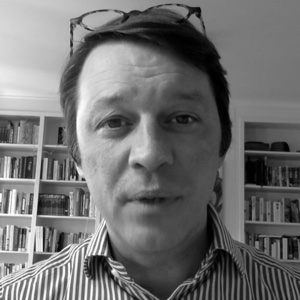Russia does not rule out future NATO membership
Russia does not rule out NATO membership at some point in the future, but for the moment it prefers to keep co-operation on a practical, limited level, Moscow's envoy to NATO Dmitry Rogozin told EUobserver.
"There is no such necessity at this moment, but we cannot rule out this opportunity in the future," Mr Rogozin said in a phone interview on Tuesday (31 March), one day after Polish foreign minister Radoslaw Sikorski said Russia should join the military alliance, if it meets the membership criteria.
Join EUobserver today
Support quality EU news
Get instant access to all articles — and 20 years of archives. 14-day free trial.
Choose your plan
... or subscribe as a group
Already a member?
"We need Russia for the resolution of European and global problems. That is why I think it would be good for Russia to join NATO," Mr Sikorski had said at an acacdemic symposium in Poland, as quoted by Polish daily Gazeta Wyborcza.
The same view was echoed on Wednesday at a civil society event in Brussels called the "Shadow NATO summit," aimed at feeding the debate around the future of the military alliance.
"The problem is not that NATO extended to Russia's borders, but that it stopped there," said Gareth Evans, President of the International Crisis Group, a Brussels-based advocacy group. "NATO should welcome Russia in its inner ring, provided it complies with the human rights criteria," he added, while admitting that this was not a short-term option, especially after the Georgian war.
However, Mr Evans stressed that allies should at least start to "conceptualise" Russia's potential NATO membership.
On the other hand, a British academic with the Loughborough University, stressed that such an option "had to be looked at soberly," pointing at Russia's membership of two other international organisations - the Council of Europe and the Organisation for Security and Cooperation in Europe (OSCE) - where Moscow was hampering deployment of election monitors in Russia itself and in its neighbouring countries.
Russia's NATO membership has never been seen as a serious option, while Moscow maintains that it sees the alliance as a threat. NATO came about in 1949 as a US-led military alliance guaranteeing the security of the then Western European allies from any potential attacks by the Soviet Union.
Once the USSR collapsed, eastern European countries requested NATO membership and underwent major military, police and rule of law reforms before joining the alliance. Russia has fiercely opposed NATO enlargement to its neighbourhood, which it still considers under its sphere of influence.
"We don't consider it necessary to make any concessions in terms of our sovereignty and we are capable of solving all the threats in an independent way. What we are ready for is to create some temporary coalitions, but at the moment we are not happy about many things happening in NATO," Mr Rogozin said, adding that this was a reason why membership was out of the question at this point.
"Great powers don't join coalitions, they create coalitions. Russia considers itself a great power," the Russian ambassador stressed.
He said Russia wanted to be NATO's "partner," provided the alliance took into account Moscow's "interest" - a catchphrase alluding to NATO enlargement to its neighbouring Ukraine and Georgia, which it fiercely opposes.
Mr Rogozin strongly criticised NATO's solidarity with Georgia during and after Russia's invasion of its territory following Tbilisi's attack on South Ossetia.
"We are extremely frustrated and astonished by NATO's actions in August-September last year, when our soldiers were killed and instead of support, we only saw the hypocrisy of their policy. NATO turned out to be the only organisation that sided fully with the aggressor," he said.
"For the moment, we don't see any real change in the organisation, we only see the organisation getting ready for the wars of past Europe," Mr Rogozin concluded.
NATO's new concept to involve Russia
NATO leaders on Saturday are set to give a green light to the drafting of a new security concept, as the alliance celebrates 60 years of existence. Its current strategic concept dates back to 1999 and does not include new threats such as terrorism, cyberattacks or energy security.
NATO's relationship with Russia, now resumed after the Georgian war, is set to be developed in concrete areas of co-operation, a senior US official told journalists in Brussels on Monday, ahead of the NATO summit.
The new administration in Washington has pledged to "hit the reset button" with Russia, as it needs to cooperate with Moscow in order to achieve progress in difficult dossiers such as Afghanistan and Iran.
Mr Rogozin said the NATO-Russia council (NRC) was so far "a body where scholastic discussions were held."
The same view was shared on Monday by the US official. "The problem with the NRC so far was that it didn't focus on content. There was a lot of structure, but no content. We want now to structure cooperation more practically, in areas where you can achieve results, instead of insisting on things that won't happen," the US official said.
The Russian envoy said that in order for the NRC to work properly, NATO had to "take part in the discussion not from a bloc approach, but in our national capacities, not in the form of 26+1 but in the form of 27 members of the NATO-Russia council."










